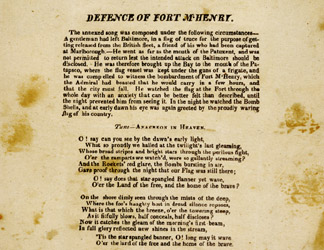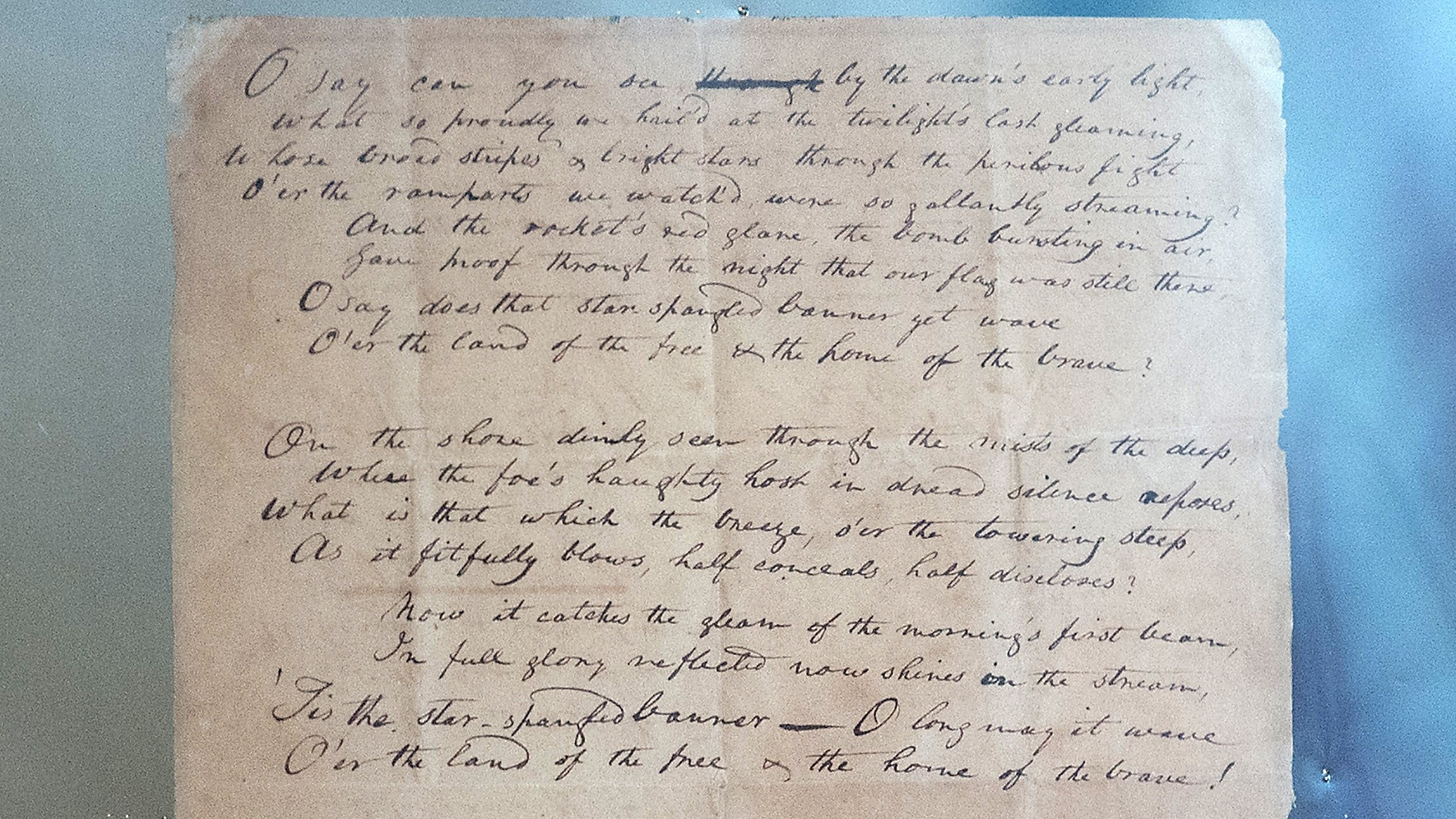
The song remained popular throughout the 1800s and was often played at military ceremonies. But a music printer soon took the liberty of changing the title to “The Star-Spangled Banner.” That, of course, was the name that stuck. included the heroic verses in their pages. Within a week of the battle, it was printed up under the title of “Defence of Fort McHenry.” Newspapers up and down the U.S. Key’s poem/song became a big hit almost immediately.

"To Anacreon in Heaven" by John Stafford Smith Interestingly, Key put the words to a (gasp) familiar drinking song, “To Anacreon in Heaven,” written by (gasp) British composer John Stafford Smith.
Original american national anthem lyrics free#
O'er the land of the free and the home of the brave? O! say does that star-spangled banner yet wave Gave proof through the night that our flag was still there. O’er the ramparts we watched were so gallantly streaming?Īnd the rockets’ red glare, the bombs bursting in air, Whose broad stripes and bright stars through the perilous fight, What so proudly we hailed at the twilight’s last gleaming? Oh say can you see by the dawn’s early light had withstood Great Britain’s armed might: The British attack had failed and Baltimore was saved.Īs soon as Key was released, he pulled an envelope from his pocket and began writing on the back. He prepared himself to see his fears fulfilled: the British flag flying over Fort McHenry. Hour after hour, they lobbed rockets and shells at the fort, more than 1,500 ka-booms in all.Īs dawn neared, Key squinted through the gloom and smoke. British ships let loose with their cannon as night fell. Meanwhile, the Americans had very good seats for the fireworks. The British could not let Key and the others report on what they had seen. Once they captured the fort, British troops would then raid the city, like they had in Washington. British ships were moving into position to blast the daylights out of Fort McHenry, about eight miles away. But when it came time for Key and his companions to paddle home, their hosts said hold your rowboats. The meeting with the British officers went well, and they even dined together. Their mission was to seek the release of some American prisoners. official rowed over to a British warship at the mouth of the Patapsco River outside of Baltimore, Maryland. It was against this backdrop that “The Star-Spangled Banner” got its words. But it also fired up a lot of Americans, including Francis Scott Key, to get behind the U.S. capital was a huge blow to American morale. They torched the White House, the buildings that housed Congress, and other government buildings. Then in August 1814, British forces raided Washington, D.C. forces struggled to match the British on land, sea, and the Great Lakes.

The war was also bad for American business, since Great Britain had been the biggest trading partner of U.S. The British war machine greatly outgunned the young U.S. declared war on Great Britain, starting the War of 1812. He and many other Americans were not all that happy when the U.S. Francis Scott Key was an American lawyer and an amateur poet.


 0 kommentar(er)
0 kommentar(er)
